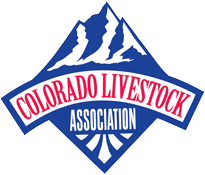At its most recent meeting, the Colorado Livestock Association Board of Directors took positions on three ballots issues that voters will decide in the 2020 elections.
SUPPORT:
Amendment B: Repeal Gallagher Amendment
Without increasing property tax rates, to help preserve funding for local districts that provide fire protection, police, ambulance, hospital, kindergarten through twelfth grade education, and other services, and to avoid automatic mill levy increases, shall there be an amendment to the Colorado constitution to repeal the requirement that the general assembly periodically change the residential assessment rate in order to maintain the statewide proportion of residential property as compared to all other taxable property valued for property tax purposes and repeal the nonresidential property tax assessment rate of twenty-nine percent?
OPPOSE:
Proposition 114: Reintroduction and Management of Gray Wolves
Shall there be a change to the Colorado Revised Statutes concerning the restoration of gray wolves through their reintroduction on designated lands in Colorado located west of the continental divide, and, in connection therewith, requiring the Colorado parks and wildlife commission, after holding statewide hearings and using scientific data, to implement a plan to restore and manage gray wolves; prohibiting the commission from imposing any land, water, or resource use restrictions on private landowners to further the plan; and requiring the commission to fairly compensate owners for losses of livestock caused by gray wolves?
OPPOSE:
Proposition 118: Paid Family and Medical Leave Insurance Program
Shall there be a change to the Colorado Revised Statutes concerning the creation of a paid family and medical leave program in Colorado, and, in connection therewith, authorizing paid family and medical leave for a covered employee who has a serious health condition, is caring for a new child or for a family member with a serious health condition, or has a need for leave related to a family member’s military deployment or for safe leave; establishing a maximum of 12 weeks of family and medical leave, with an additional 4 weeks for pregnancy or childbirth complications, with a cap on the weekly benefit amount; requiring job protection for and prohibiting retaliation against an employee who takes paid family and medical leave; allowing a local government to opt out of the program; permitting employees of such a local government and self-employed individuals to participate in the program; exempting employers who offer an approved private paid family and medical leave plan; to pay for the program, requiring a premium of 0.9% of each employee’s wages, up to a cap, through December 31, 2024, and as set thereafter, up to 1.2% of each employee’s wages, by the director of the division of family and medical leave insurance; authorizing an employer to deduct up to 50% of the premium amount from an employee’s wages and requiring the employer to pay the remainder of the premium, with an exemption for employers with fewer than 10 employees; creating the division of family and medical leave insurance as an enterprise within the department of labor and employment to administer the program; and establishing an enforcement and appeals process for retaliation and denied claims?
For information on each of these issues please refer to the 2020 Blue Book. To view the Fiscal Impact Statements for Statewide Ballot Measures click here.
